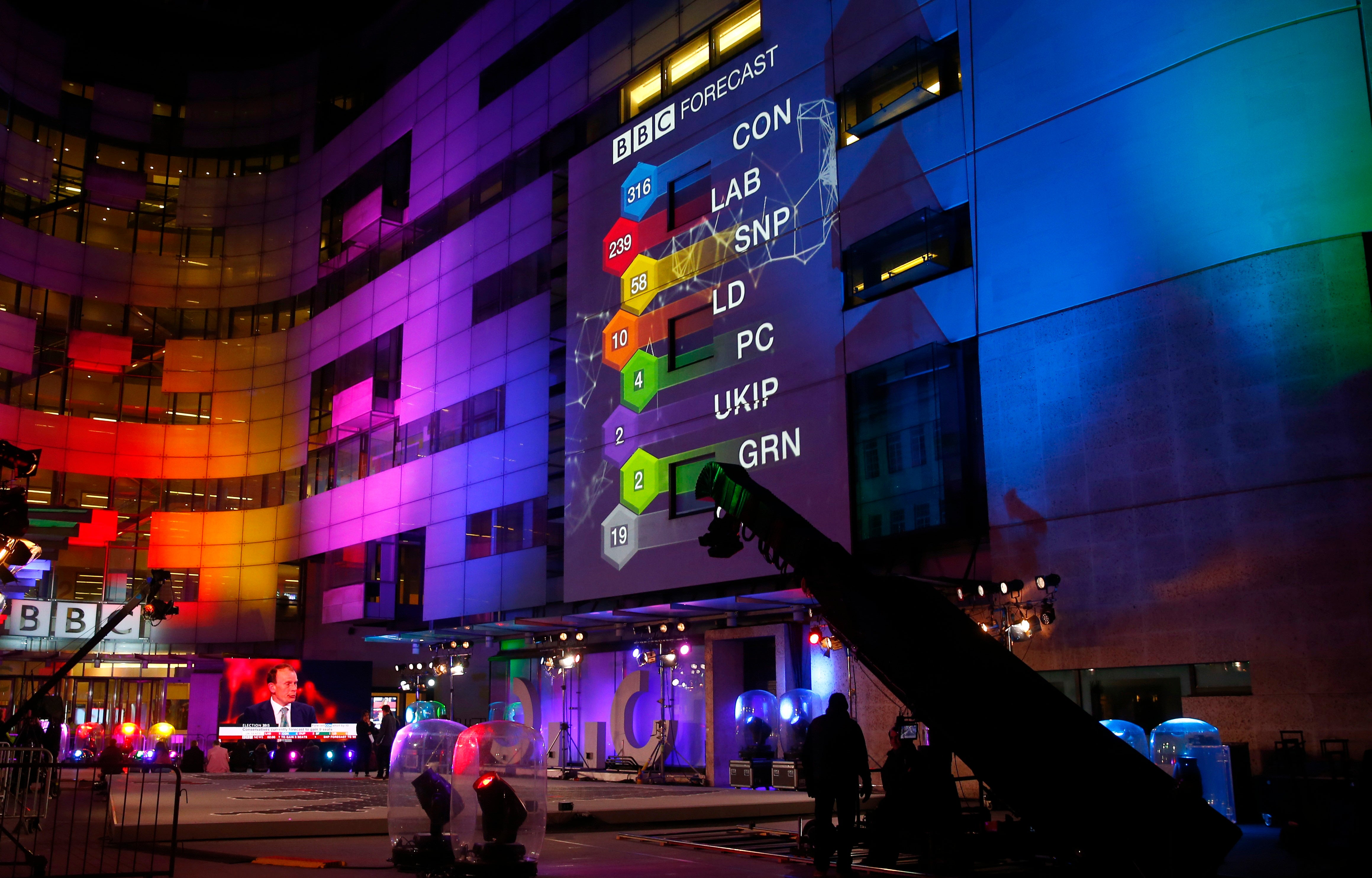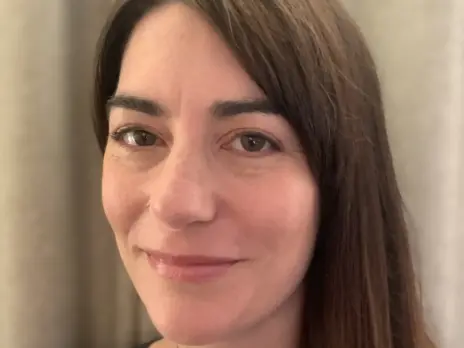
The BBC failed to consider the needs of colour blind viewers during general election coverage, the broadcaster’s watchdog has found.
The BBC Trust upheld a series of complaints about confusing graphics and asked the broadcaster to review its guidance for people who struggle to see colour.
The corporation “failed to meet best-practice standards and in so doing it had not considered the needs of a significant minority of its audience at an important time”, the trust concluded.
Community interest group Colour Blind Awareness complained that some of the broadcasts around the 2015 UK general election were a “joke” for two million colour blind voters, who could not read graphics and website information depicted in different colours.
It was difficult to distinguish between the blue and purple for Conservative and Ukip respectively, the red and orange for Labour and Liberal Democrats respectively, the orange and yellow for Lib Dem and SNP and the maroon and dark green of the Northern Ireland parties, the group said.
Other viewers also struggled with differentiating between the red and green of Labour and Plaid Cymru and orange and green for Lib Dem and Plaid Cymru.
The group also noted that the BBC had used at least nine different shades of orange.
Colour Blind Awareness founder Kathryn Albany-Ward said: “We have been making the BBC aware for some time that a lot of their broadcast and online information is difficult for colour blind people to understand – with virtually no success.
“When the impending 2015 election graphics fiasco came to our attention and we were being given the brush-off, we decided enough was enough.
“The BBC can’t stand by and knowingly discriminate against nearly 5% of the population at any time, but in the run-up to a general election we found their attitude to be totally unacceptable.
“We decided to make an example and despite constantly being ignored all the way through the very lengthy BBC complaints procedure we have finally been vindicated by the BBC Trust Complaints and Appeals Board which upheld six out of seven of the complaints we made.”
Ms Albany-Ward raised a number of concerns about the BBC’s use of graphics, saying: “Despite our complaints the BBC were still producing inaccessible graphics for the 2016 council and police and crime commissioner elections although they did finally begin to make meaningful changes for the EU referendum coverage.
“Unfortunately, many BBC graphics are still inaccessible and we are looking forward to finding out how and when the BBC intend to implement the changes recommended by the trust. We hope that in their new role Ofcom will be monitoring the situation closely.”
The trust noted that the BBC had used computer software, Vischeck, which shows how colours would look to the colour blind, when preparing graphics for the election.
It also used the Snook Colour Checker, another piece of software which checks whether a combination of foreground and background colours would have enough contrast when viewed by someone with a colour vision deficiency, or when viewed on a black and white screen, and made a number of changes to the design of graphics as a result.
The BBC also ran a training session on accessibility for its online designers, the trust added.
Ms Albany-Ward added: “We also hope the new Culture Secretary, Karen Bradley, will be willing to meet with us to discuss how colour blind people can also be afforded proper access to sport and to digital information.
“For example, it’s embarrassing for the UK to have held a Rugby World Cup tournament in England where colour blind people were unable to follow some matches.”
A BBC spokesman said: “The BBC leads the industry in making accessible programmes and we strive to produce graphics that are clear and informative for all viewers.
“During last year’s election coverage we used text labelling and journalist explanations, both online and on television, to convey graphical findings in other ways.
“Whilst we are restricted to using official political party colours we have already made many changes to our graphics, partly in response to our conversations with Colour Blind Awareness, including the use of party logos and adjusting some colours and how we contrast them on graphics.”
Email pged@pressgazette.co.uk to point out mistakes, provide story tips or send in a letter for publication on our "Letters Page" blog






